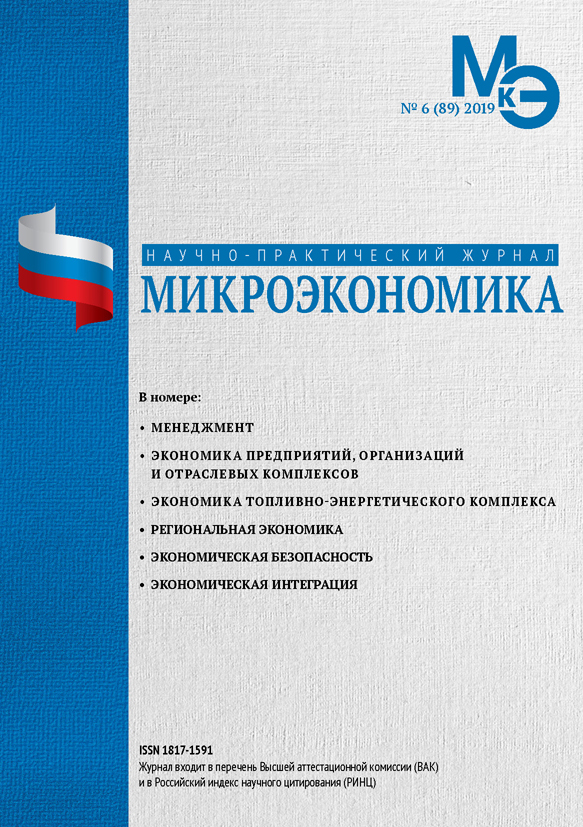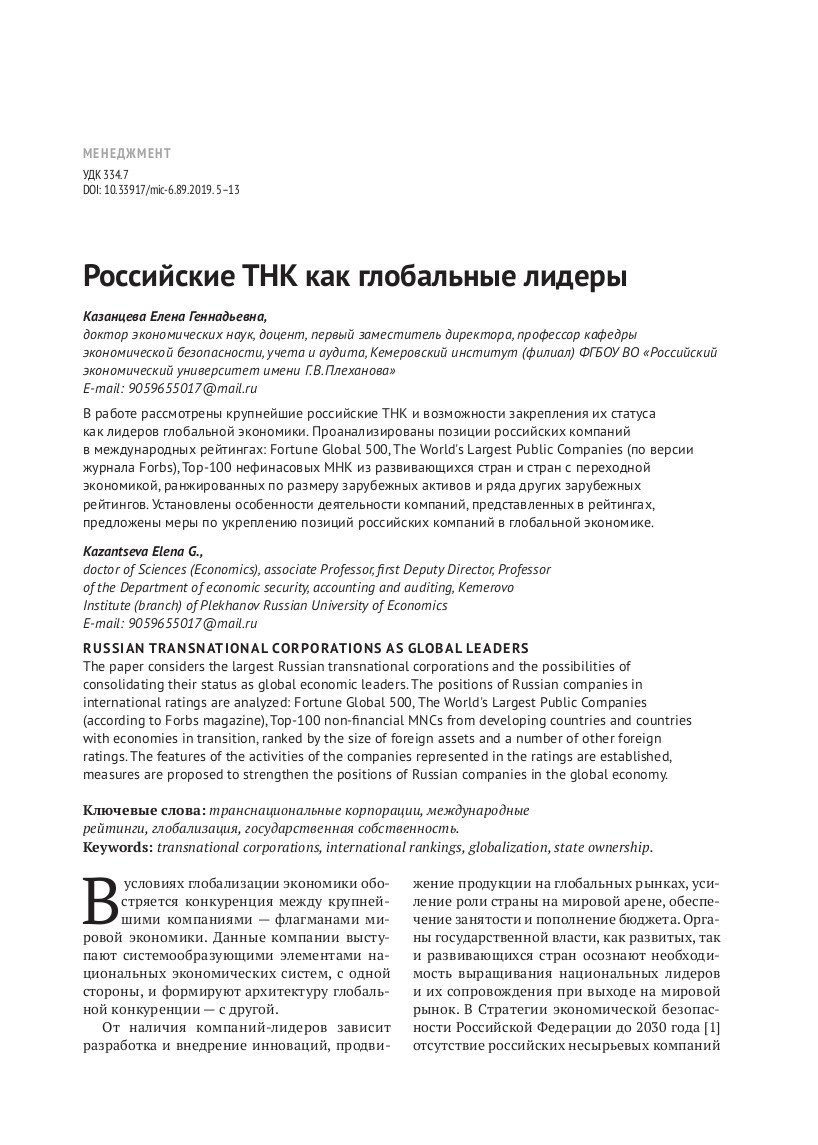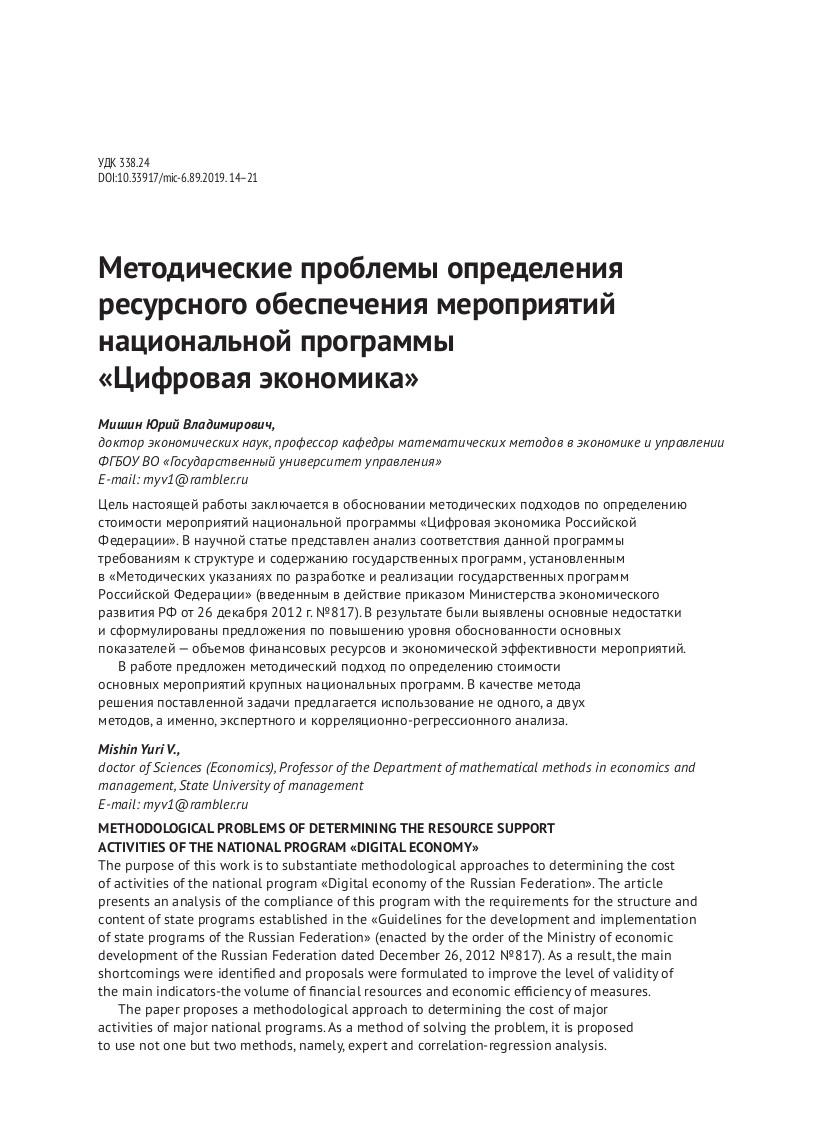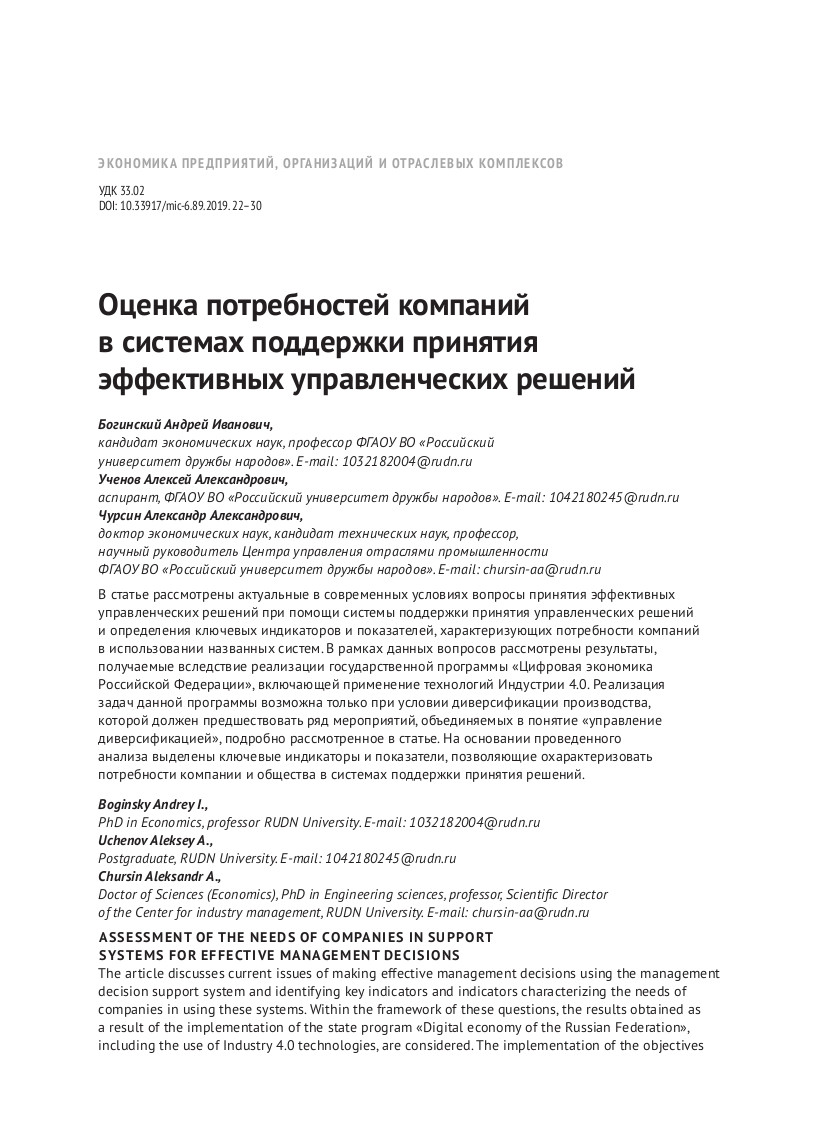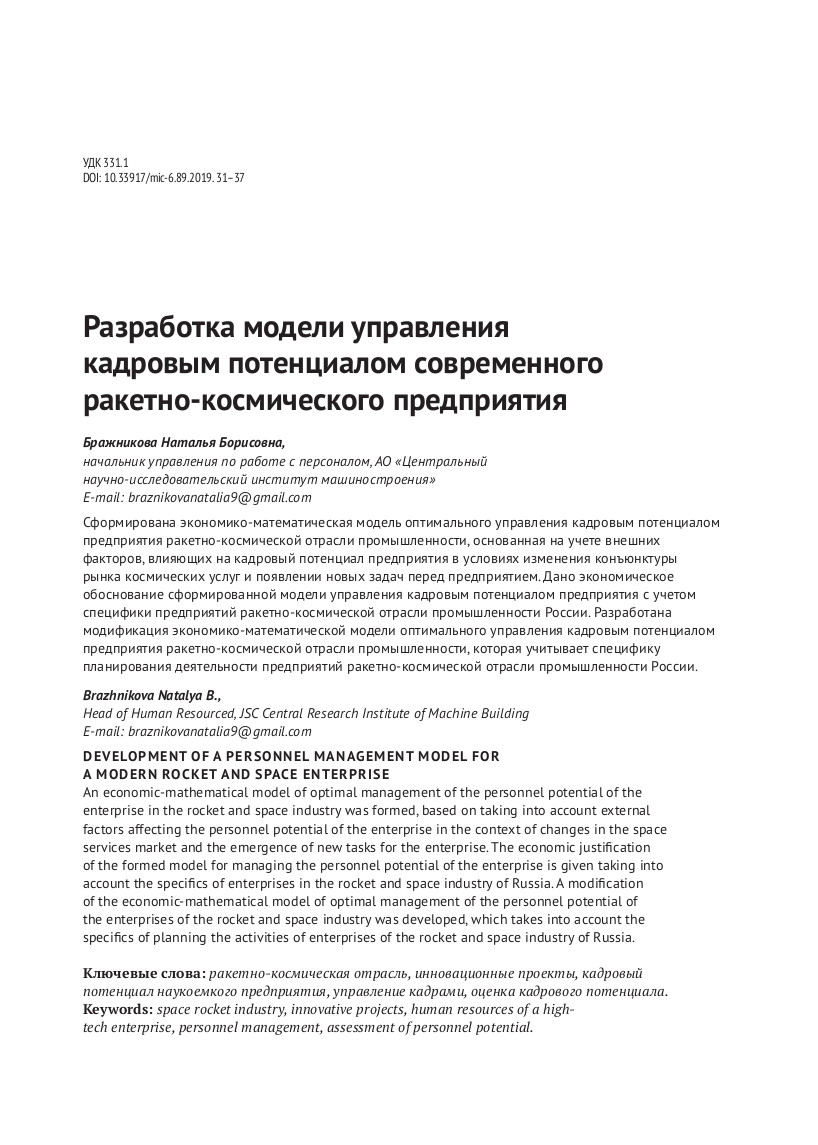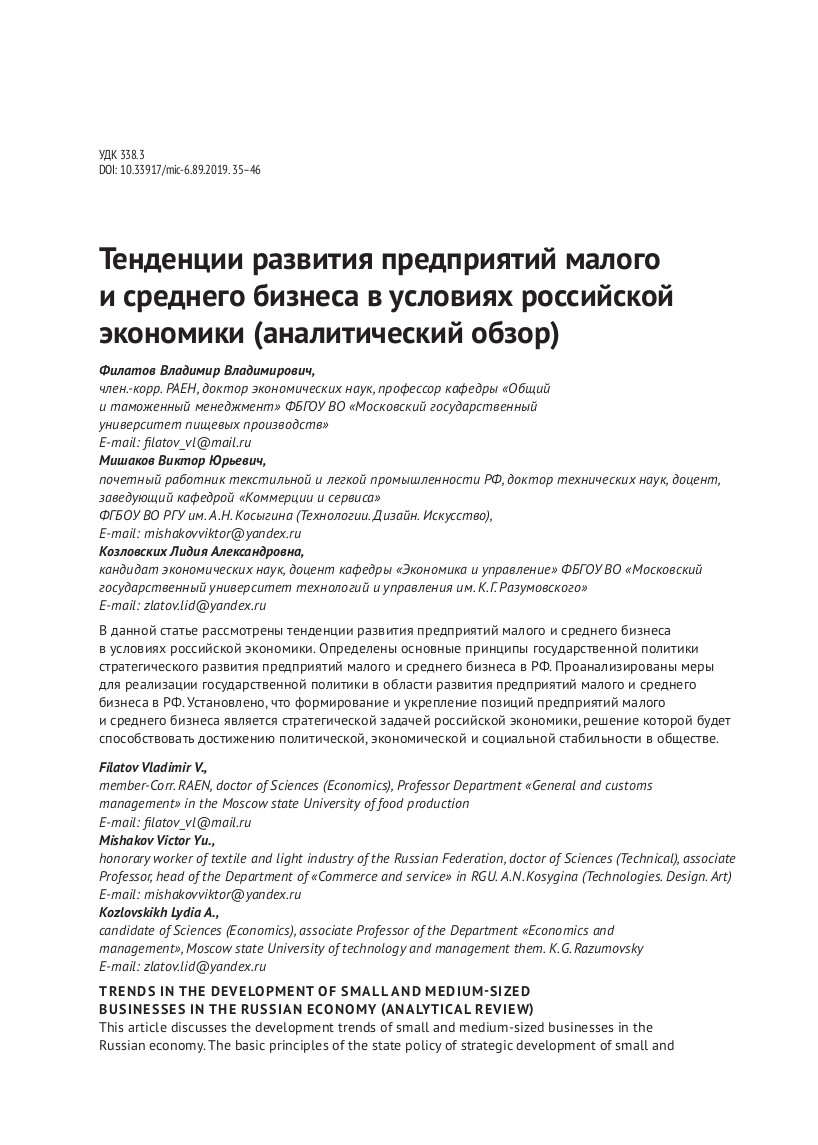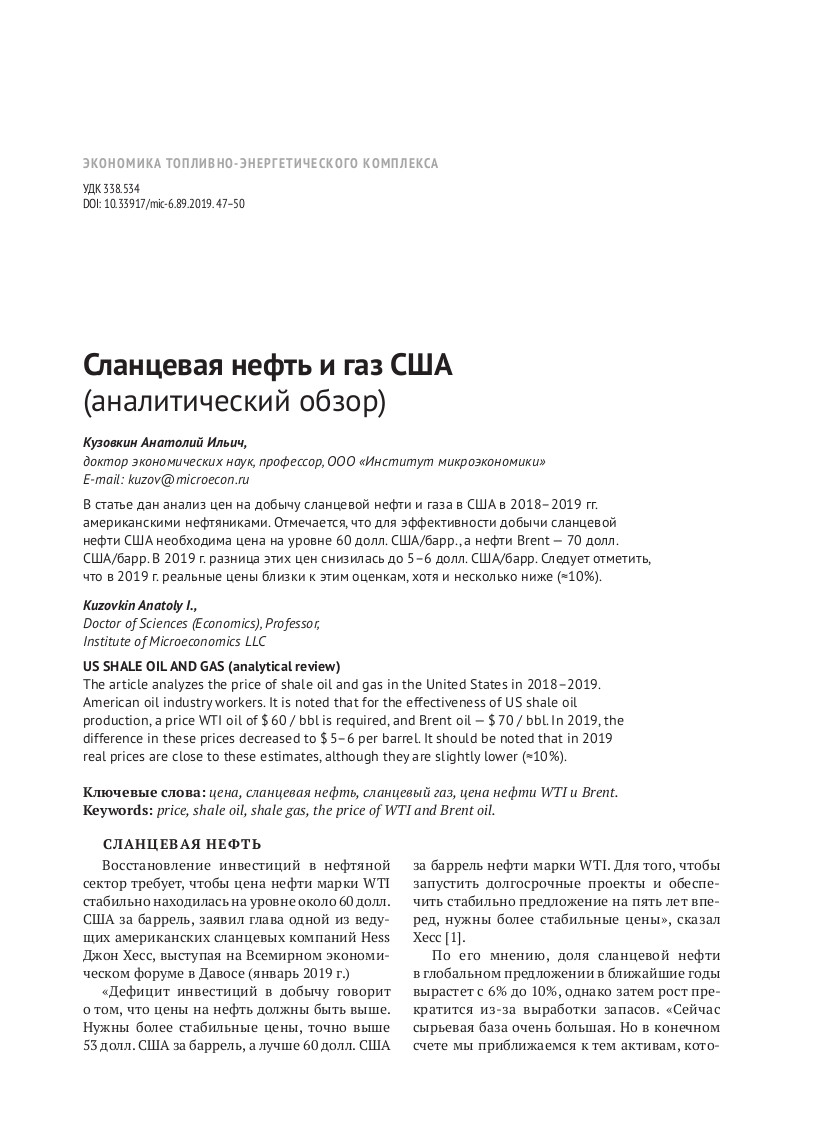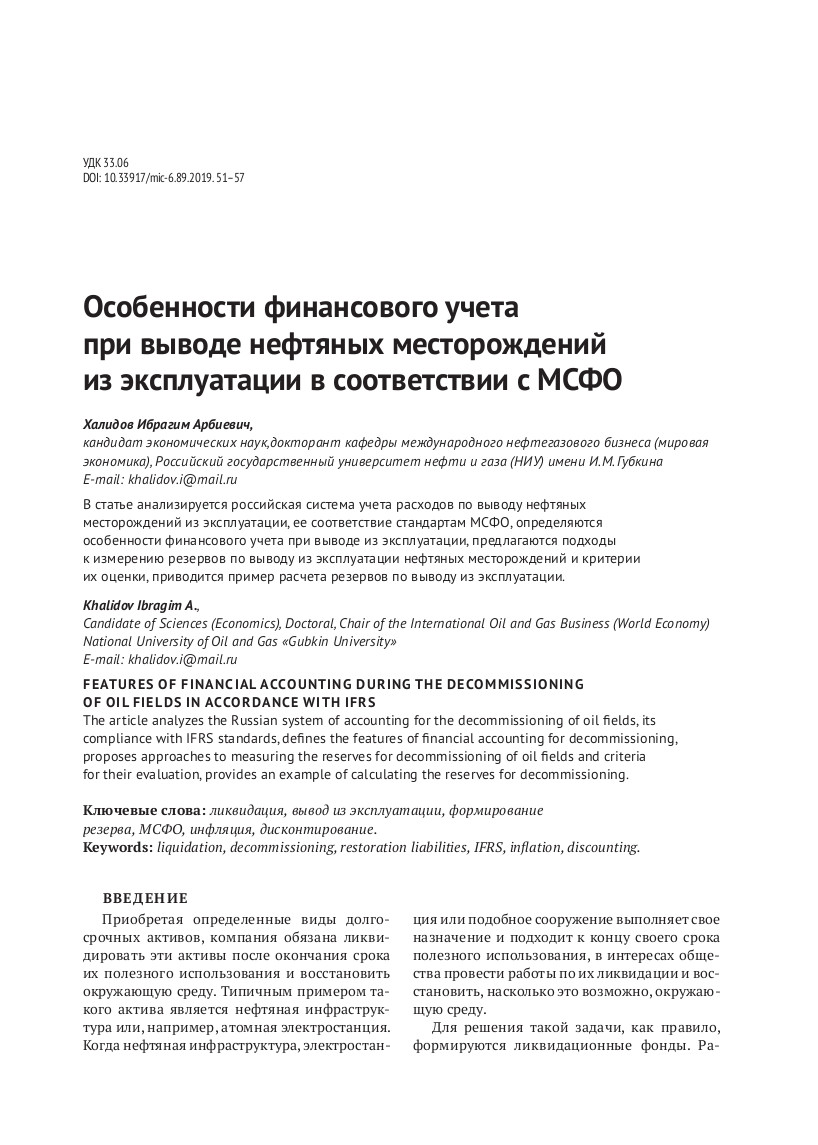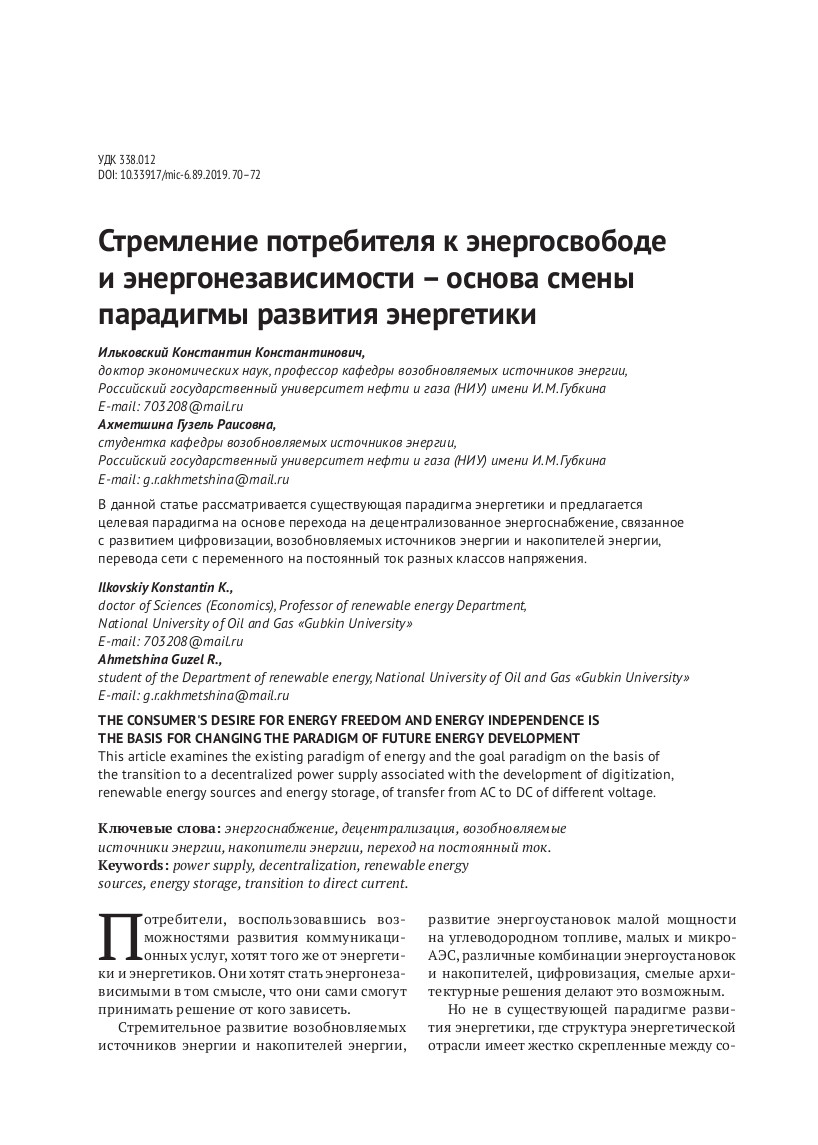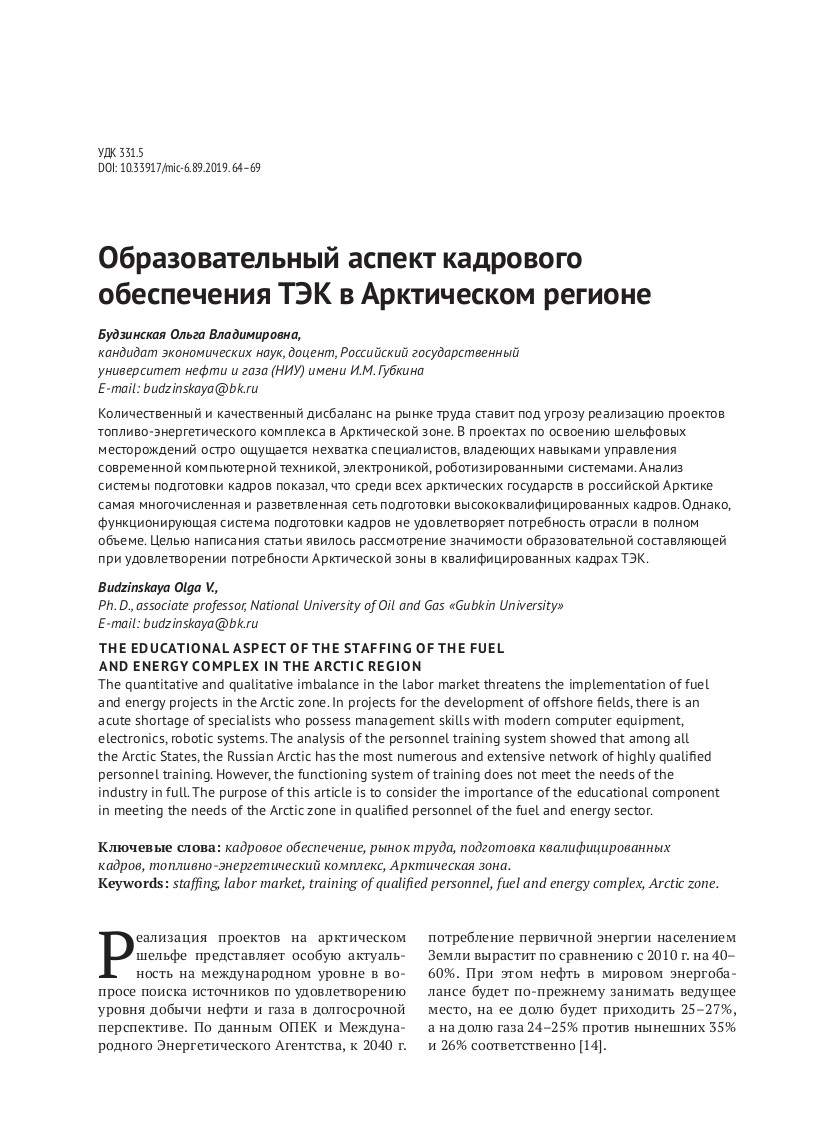Russian transnational corporations as global leaders
DOI: 10.33917/mic-6.89.2019.5-13
The paper considers the largest Russian transnational corporations and the possibilities of consolidating their status as global economic leaders. The positions of Russian companies in international ratings are analyzed: Fortune Global 500, The World’s Largest Public Companies (according to Forbs magazine), Top-100 non-financial MNCs from developing countries and countries with economies in transition, ranked by the size of foreign assets and a number of other foreign ratings. The features of the activities of the companies represented in the ratings are established, measures are proposed to strengthen the positions of Russian companies in the global economy.


